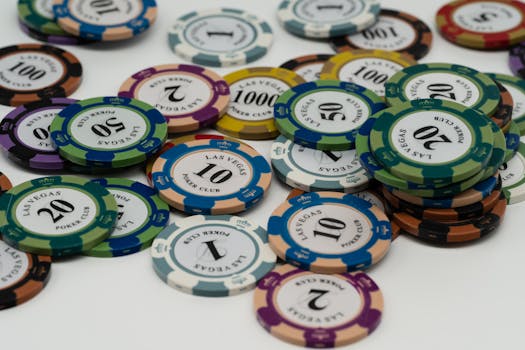Why Self-Exclusion is a Powerful Tool in Gambling
Gambling is a popular form of entertainment, enjoyed by millions worldwide. However, for some individuals, gambling can evolve from a harmless diversion into a serious addiction with detrimental financial, emotional, and social consequences. Recognizing the potential risks associated with problematic gambling behaviors, various tools and strategies have been developed to help individuals manage their gambling habits. Among these, self-exclusion programs stand out as a particularly effective intervention.
Self-exclusion is a voluntary process whereby a gambler agrees to be barred from entering or using gambling facilities for a specified period. This measure is intended to act as a circuit breaker for those who recognize they have a gambling problem and seek help to prevent further gambling activities.
Understanding Self-Exclusion Programs
Self-exclusion programs are typically facilitated by gambling regulators or individual casinos, both online and offline. When a person enrolls in a self-exclusion program, their details are entered into a database, which is used to prevent them from gambling at participating venues or sites. The duration of exclusion can vary, generally ranging from six months to several years, depending on the specific rules of the program and the jurisdiction.
Types of Self-Exclusion Programs
Casino Self-Exclusion
Casino self-exclusion programs are prevalent in many parts of the world and are particularly useful for those who frequent brick-and-mortar casinos. Participants must usually sign up at a casino or other gambling establishment, sometimes with the assistance of a program administrator. The effectiveness of these programs largely depends on the cooperation of casino staff and the robustness of the identification checks at entry points.
Online Gambling Blocks
With the rise of online gambling, digital self-exclusion schemes have become increasingly important. Programs like GamStop in the United Kingdom allow users to block themselves from all gambling websites and apps licensed in the UK with a single registration. This comprehensive approach helps users avoid the pitfalls of having multiple accounts with different operators.
Self-Limitation Options
Besides self-exclusion, some gambling platforms offer self-limitation tools. These allow users to set limits on their deposits, losses, or time spent gambling. While not as drastic as self-exclusion, self-limitation can be a proactive approach to maintaining control over one's gambling activities.
Advantages and Disadvantages of Self-Exclusion Programs
Advantages
The main advantage of self-exclusion programs is that they provide a clear and structured path towards recovery for those struggling with gambling addiction. They force an immediate break from gambling, which can help to disrupt harmful patterns and provide time for reflection and seeking further treatment. Additionally, the formal process of enrolling in a self-exclusion program can serve as a significant psychological commitment to quitting gambling, reinforcing the individual's determination to change.
Disadvantages
However, self-exclusion is not without its challenges and limitations. One major disadvantage is that it relies heavily on the gambler’s initiative to enroll in the program. Additionally, the effectiveness of the program can be compromised if the gambling establishments or sites do not rigorously enforce the exclusion. There is also the risk that excluded individuals might seek out unregulated gambling opportunities, potentially exacerbating the problem.
Practical Examples and Success Stories
There are numerous instances where self-exclusion has effectively helped individuals regain control of their lives. For example, many people who have used the GamStop service have reported significant improvements in their financial stability and personal relationships. Furthermore, jurisdictions with robust self-exclusion programs often report lower rates of gambling addiction and related problems.
Conclusion and Recommendations
Self-exclusion is a powerful tool for combating gambling addiction, providing crucial breathing space for individuals to seek further help and reevaluate their gambling behaviors. It is most effective when combined with other treatment options, such as counseling, financial advice, and support from peers or self-help groups.
If you or someone you know is struggling with gambling addiction, consider exploring self-exclusion as a viable option. Contact local gambling support groups or visit gambling regulatory websites to find more information on how to enroll in self-exclusion programs. Remember, taking the first step is often the hardest, but it is also the most crucial on the path to recovery.





